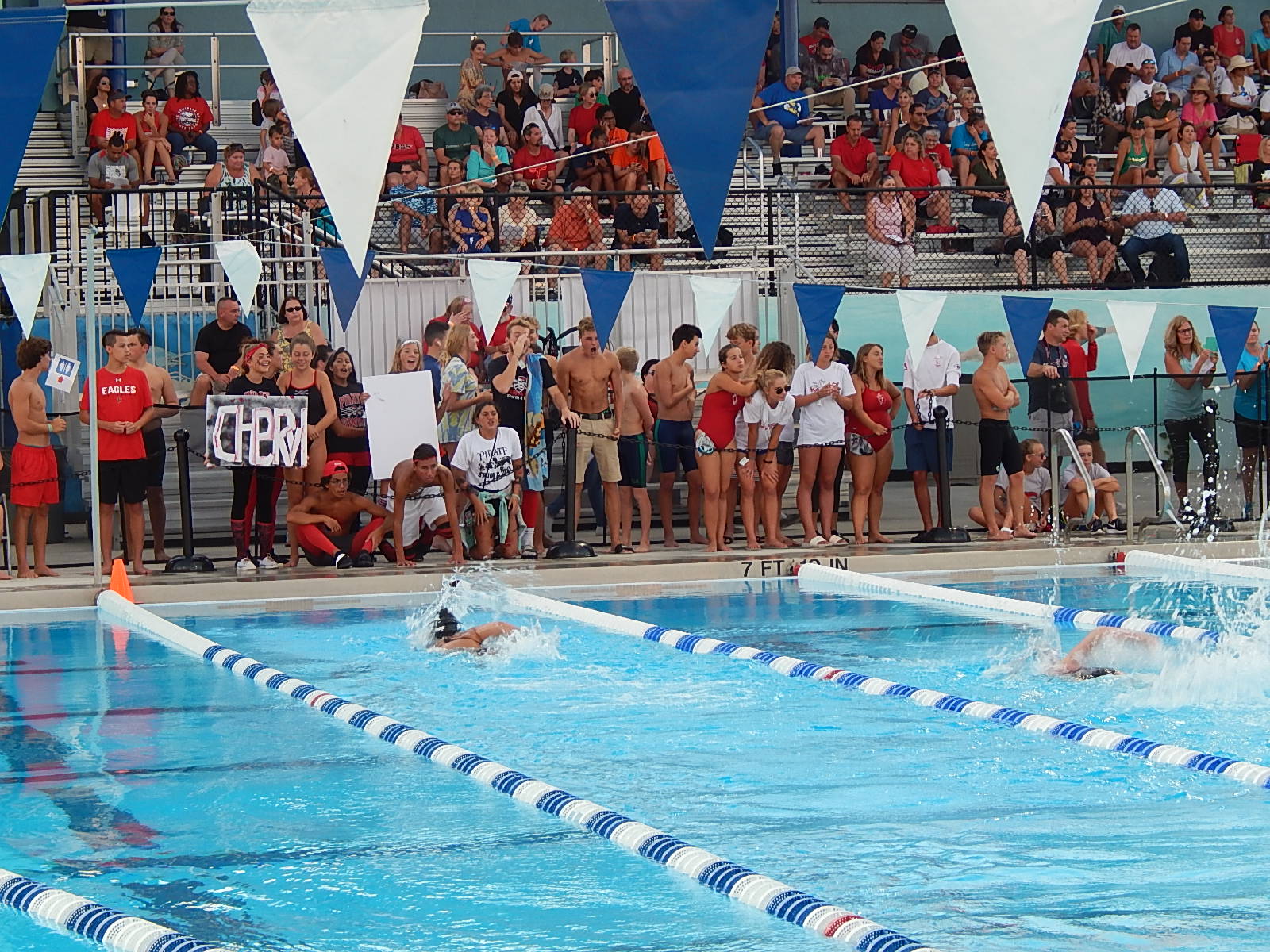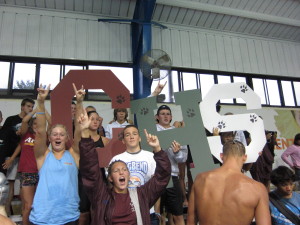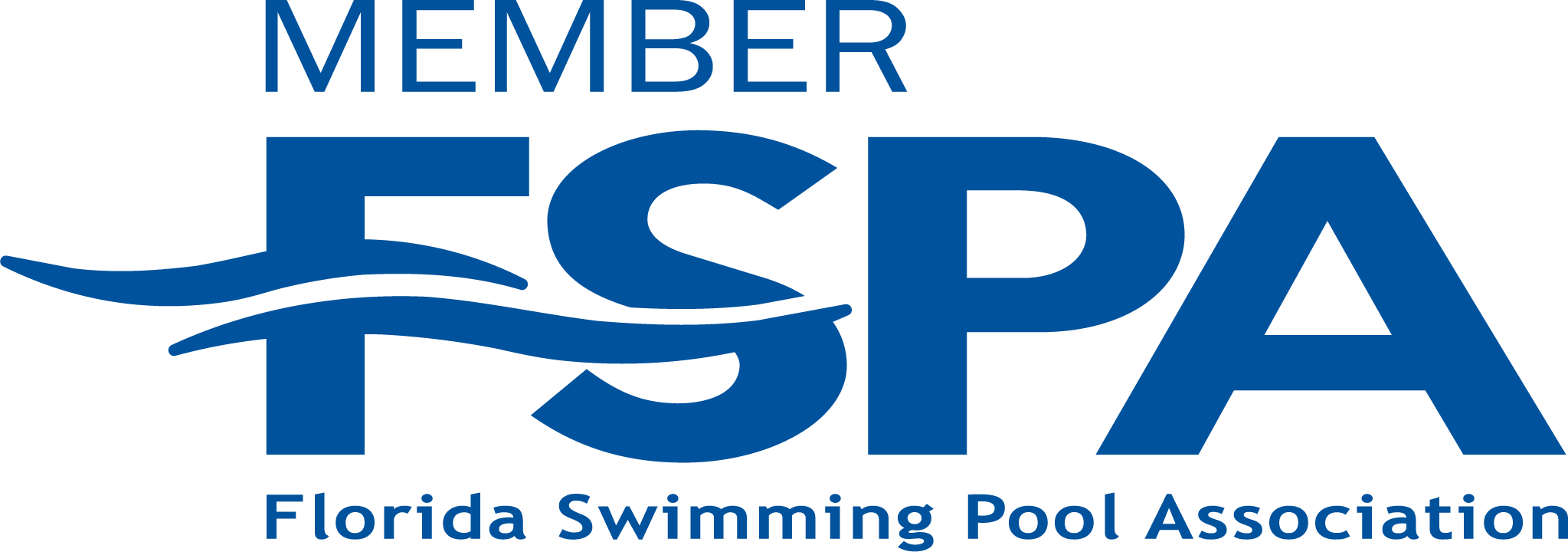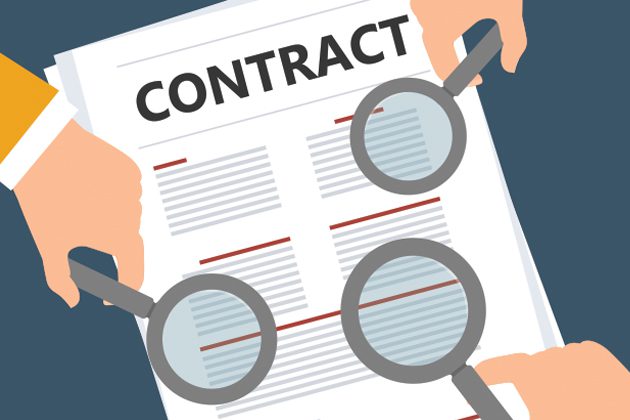
All posts by Mike Madry


The Florida Swimming Pool Association (FSPA) is gearing up for one of the most exciting and fulfilling events the association supports.
On September 27-28, FSPA will hold one of the largest swim meet of its kind in the Southeastern US, as anywhere from 1,000-1,500 athletes will compete in 42nd annual FSPA High School Swimming and Diving Meet over a two-day span.
“FSPA is beyond thrilled to support this event,” said Wendy Parker, FSPA Executive Director. “Our association believes everyone should learn how to swim, as it could be life-saving, so to promote swimming as a whole is important to us.”
The meet is sanctioned by the Florida High School Athletics Association (FHSAA) and observed by USA Swimming.
“This meet was unlike any meet I have ever been a part of before,” said a member of the Yulee High School team who participated in the event last year. “Not only did our team grow tighter as a family but also, for the first time in a long time, we went to a meet and thoroughly enjoyed ourselves. The entire team left with a feeling of pride and accomplishment because now we could say that we had gotten to compete with the best.”
Last year, the Men’s and Women’s team from Oviedo High School took home first place.
The meet will take place at the Sailfish Splash Aquatic and Athletics Center located at 931 SE Ruhnke St. in Stuart.
Companies within the pool industry help sponsor the event with the profits going to Florida Swims, a 501(k) (3) foundation, to support swim lessons for young children and swim safety.
By David Griffiths, Insurance By Ken Brown / dgriffiths@insbykenbrown.com
It’s that time of year. Many young people are out looking for full and part-time summer jobs. So, what considerations do you have as a business owner?
Young workers can be an asset to your workforce; however, young workers have unique and substantial risks
for work-related injuries and illnesses due to a variety of factors. On-the-job injuries to young workers may be significant and costly.
There are also several laws and procedures to consider when hiring a minor, as follows:
Posting Requirements
Employers who hire minors must display a poster in a conspicuous place on the property or place of employment notifying them of the Child Labor Law. Child labor posters may be obtained by calling Child Labor Compliance at 1-800-226-2536 or online at www.laborposters.org/florida/97-florida-child-labor-laws-poster.htm.
Documentation Requirements
Employers are required to keep waiver authorizations, proof of age documentation, and proof of exemption from minor status for all employees who are under 18. These records must be maintained for the duration of the minor’s employment. Unless exempt from the FLSA (Fair Labor Standards Act), the records must be kept until the minor turns 19.
Parental Permission to Hire
Employers are not required by law to have permission from the parents to employ their minor child. However, we strongly encourage employers to include parents in the process.
Work Permits
“Work Permits” and/or “Working Papers” are not required in Florida and are not issued by either the schools or any governmental agency in Florida. Please see Waivers.
Hour Limitations
Minors are limited in the hours they may work to permit them to attend and complete their educational responsibilities. Go here for more information:
www.myfloridalicense.com/dbpr/reg/childlabor/documents/ChildLaborBrochureEnglish.pdf.
Breaks
Minors may work no more than four consecutive hours without a 30-minute uninterrupted break.
Exemptions
Minors are exempt from the hour limitations of the Child Labor Law if they have been married, graduated from an accredited high school or hold a high school equivalency diploma, served in the military, have been authorized by a court order, or been issued a partial waiver by the public school or the Child Labor Program.
Safety
Each year minors suffer injuries in the workplace. OSHA has recommendations and guidelines regarding this area. You can view these at: www.osha.gov/youngworkers.
Also, please visit the following website for additional training tips for minor workers: www.cdc.gov/niosh/talkingsafety/states/fl/2015-124/default.html
Waivers
The Florida Child Labor Law is designed to serve and protect minors and to encourage them to remain in school. At times, however, some minors feel that the law conflicts with their best interest or that their life circumstances are such that they need to work. Minors have the right to request that the Child Labor Office exempt them from parts of the Child Labor Law. For detailed information on waivers please call 1-850-488-3131.
Penalties
Employment of minors in violation of Florida child labor laws may result in fines up to $2,500 per offense and/or be guilty of a second-degree misdemeanor.
More Information
Employers who have an interest in learning more about Florida’s child labor law may request training by contacting the Bureau of Child Labor at 1-800-226-2536 or 850-488-3131.
We support your companies giving young people the opportunity to learn your business, learn what work ethic is and have some spending money or money for future education. It’s great for the future of our country. However, we encourage you to take the right steps to protect both you and them!
 By David Griffiths, Insurance By Ken Brown /dgriffiths@insbykenbrown.com
By David Griffiths, Insurance By Ken Brown /dgriffiths@insbykenbrown.com
It’s that time of year. Many young people are out looking for full and part-time summer jobs. So, what considerations do you have as a business owner?
Young workers can be an asset to your workforce; however, young workers have unique and substantial risks for work-related injuries and illnesses due to a variety of factors. On-the-job injuries to young workers may be significant and costly.
There are also several laws and procedures to consider when hiring a minor, as follows:
Posting Requirements
Employers who hire minors must display a poster in a conspicuous place on the property or place of employment notifying them of the Child Labor Law. Child labor posters may be obtained by calling Child Labor Compliance at 1-800-226-2536 or online at www.laborposters.org/florida/97-florida-child-labor-laws-poster.htm.
Documentation Requirements
Employers are required to keep waiver authorizations, proof of age documentation, and proof of exemption from minor status for all employees who are under 18. These records must be maintained for the duration of the minor’s employment. Unless exempt from the FLSA (Fair Labor Standards Act), the records must be kept until the minor turns 19.
Parental Permission to Hire
Employers are not required by law to have permission from the parents to employ their minor child. However, we strongly encourage employers to include parents in the process.
Work Permits
“Work Permits” and/or “Working Papers” are not required in Florida and are not issued by either the schools or any governmental agency in Florida. Please see Waivers.
Hour Limitations
Minors are limited in the hours they may work to permit them to attend and complete their educational responsibilities. Go here for more information:
www.myfloridalicense.com/dbpr/reg/childlabor/documents/ChildLaborBrochureEnglish.pdf.
Breaks
Minors may work no more than four consecutive hours without a 30-minute uninterrupted break.
Exemptions
Minors are exempt from the hour limitations of the Child Labor Law if they have been married, graduated from an accredited high school or hold a high school equivalency diploma, served in the military, have been authorized by a court order, or been issued a partial waiver by the public school or the Child Labor Program.
Safety
Each year minors suffer injuries in the workplace. OSHA has recommendations and guidelines regarding this area. You can view these at: www.osha.gov/youngworkers.
Also, please visit the following website for additional training tips for minor workers: www.cdc.gov/niosh/talkingsafety/states/fl/2015-124/default.html
Waivers
The Florida Child Labor Law is designed to serve and protect minors and to encourage them to remain in school. At times, however, some minors feel that the law conflicts with their best interest or that their life circumstances are such that they need to work. Minors have the right to request that the Child Labor Office exempt them from parts of the Child Labor Law. For detailed information on waivers please call 1-850-488-3131.
Penalties
Employment of minors in violation of Florida child labor laws may result in fines up to $2,500 per offense and/or be guilty of a second-degree misdemeanor.
More Information
Employers who have an interest in learning more about Florida’s child labor law may request training by contacting the Bureau of Child Labor at 1-800-226-2536 or 850-488-3131.
We support your companies giving young people the opportunity to learn your business, learn what work ethic is and have some spending money or money for future education. It’s great for the future of our country. However, we encourage you to take the right steps to protect both you and them!



